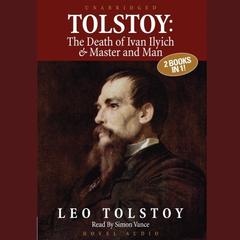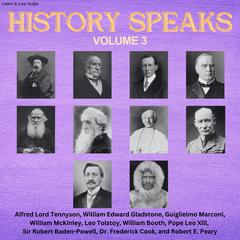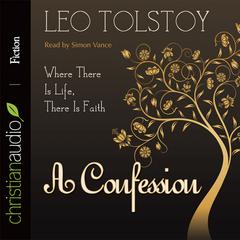 Play Audiobook Sample
Play Audiobook Sample
God Sees the Truth, But Waits Audiobook
 Play Audiobook Sample
Play Audiobook Sample
Quick Stats About this Audiobook
Total Audiobook Chapters:
Longest Chapter Length:
Shortest Chapter Length:
Average Chapter Length:
Audiobooks by this Author:
Publisher Description
God Sees the Truth, But Waits engages a subject that would have suited Dostoyevsky. But Dostoyevsky would have written it with a tone of fist-waving anger and frustration, while Tolstoy wrote this story with an accepting, nonviolent attitude toward the grievances described.
The protagonist has been wrongly accused of murder, separated from his family for twenty-six years, and by circumstance meets the real murderer in Siberia. Meanwhile, he has gained an important role in the Siberian community and is trusted by the warden and prisoners alike. He spies the murderer trying to escape and is threatened, but still does not speak out when asked to by the warden. This profoundly moves the murderer, who seeks forgiveness from the protagonist, who says, “Only God can give forgiveness.”
Download and start listening now!
God Sees the Truth, But Waits Listener Reviews
- — Marc Reibold, 7/13/2022
About Leo Tolstoy
Leo Tolstoy (1828–1910) was born about two hundred miles from Moscow. His mother died when he was two, his father when he was nine. His parents were of noble birth, and Tolstoy remained acutely aware of his aristocratic roots, even when he later embraced doctrines of equality and the brotherhood of man. After serving in the army in the Caucasus and Crimea, where he wrote his first stories, he traveled and studied educational theories. In 1862 he married Sophia Behrs and for the next fifteen years lived a tranquil, productive life, finishing War and Peace in 1869 and Anna Karenina in 1877. In 1879 he underwent a spiritual crisis; he sought to propagate his beliefs on faith, morality, and nonviolence, writing mostly parables, tracts, and morality plays. Tolstoy died of pneumonia in 1910 at the age of eighty-two.
About Deaver Brown
Deaver Brown is an author and entrepreneur. He is a graduate of Harvard Business School, and his books include Crucial Conversations, Presidential Wisdom, George Washington: Farewell Address, and numerous others.

































![English: A Large Dictionary of 4,000 Words [Russian Edition] Audibook, by](https://images.audiobookstore.com/c/e/ceip/ceip-square-240.webp)








